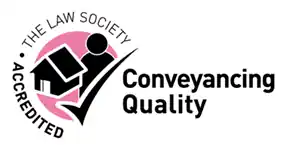Slip, Trip & Fall Claims
Our personal injury lawyers can help you to make a slip, trip and fall claim for compensation to reflect the injuries you have suffered and the impact these have had on your life, together with any financial losses and additional costs arising from:
- your inability to work, whether temporarily or permanently;
- your need for mobility aids, vehicle modifications or home adaptions, particularly where your injuries are life-changing; and
- your need for ongoing rehabilitation and medical care.
In the case of a claim being brought for compensation for a fatal accident we can help you to secure a financial settlement for the emotional trauma caused by your bereavement, the cost of providing your loved one with medical treatment where their death was not instantaneous, the cost of their funeral and the personal cost to you of no longer having them around to provide financial support.
We can also put you in touch with support services where you think this may help, including bereavement specialists Care for the Family, serious spinal and brain injury specialists the Spinal Injuries Association and Headway and amputation specialists the Limbless Association.
Personal Injury Compensation
A compensation claim may be possible in any case where injury or death has occurred following a slip, trip or fall in a public place for which you or your loved one were not to blame. This includes accidents in which you or they:
- slipped in an open public space, such as a local park, or when visiting a shop or business;
- tripped on a loose paving slap or a pothole;
- tripped on loose carpeting, cabling or an inappropriately placed bin, box or other item;
- suffered a low fall from a ramp;
- suffered a high fall from steps, stairs or a footbridge; or
- suffered a trip, fall or slip at work.
We can handle claims for injuries of all severity, including serious injuries resulting in catastrophic spinal damage leading to paralysis, devastating brain injury, full or partial limb amputation, permanent scarring and post-traumatic stress, anxiety and depression. In those rare cases where a slip, trip or fall results in death we can pursue a fatal accidents claim on behalf of dependants left behind.
We can also help to highlight the circumstances of the accident to ensure that those responsible for the place where you were injured are aware of any potential risks and can take action to improve their safety procedures.
Compensation Amount
The amount of compensation you receive will depend on a number of factors, including the severity of your injury and the impact it has had on your life. Awards vary from a few thousand pounds for a minor injury causing no lasting damage up to hundreds of thousands if not millions of pounds for serious injuries resulting in life changing disability or death.
Time limits
You will usually have three years from the date of injury in which to make a compensation claim, although the time limit may be longer in certain cases including where you were under the age of 18 at the time of the injury or are making a claim on behalf of a child or someone who has died.
Failing to seek legal advice early can result in you losing the right to make a claim so do not delay – speak to us today.
Why choose Step Legal Solicitors?
Our lawyers are accident claims specialists who act exclusively for the victims of personal injury, many of whom have been involved in slip, trip or fall accidents either here or abroad.
We have an impressive track record in achieving great results and a good amount of compensation, with recent successes achieved by our team including:
- recovering £22,600 for a gentleman who fractured his elbow after tripping on a defective pavement; and
- securing £40,000 for a lady who suffered a head injury when she slipped on the floor of a well-known supermarket.
The service we provide for people wanting to pursue slip and trip claims or fall claims is second to none as our client testimonials show. We are even recognised by leading legal counsel for our first class rate of service and excellent customer care.
Our solicitors are members of The Law Society Personal Injury Accreditation Scheme which is only open to lawyers with a proven level of knowledge and experience, and the Association of Personal Injury Lawyers which champions accident victims’ rights to justice.
Legal fees
Whenever we see clients, one of the first things they ask is ‘how much will it cost me to make a claim?’. The answer is nothing in most cases because we offer a free initial, no obligation consultation and insurance backed no win, no fee funding after that which protects you from any financial risk if your claim is not successful. Read our costs information guide for more details.
Location
Our offices are based in Crewe and benefit from car parking and easy access to and from the mainline train station.
We have a wheelchair lift into our main reception area and a ground floor meeting room for clients who struggle to climb up and down stairs.
If you are disabled or infirm and live in Crewe or the surrounding Cheshire towns of Nantwich, Northwich, Sandbach or Macclesfield we can arrange to visit you at home if getting to our offices would prove difficult for you. Home visits can also be arranged where required for clients living in Staffordshire, including Stoke-on-Trent.
Polish Clients
There is a large Polish community in Crewe whose work we are fortunate to get on a regular basis. With this in mind we have employed a Polish paralegal who is always on hand to provide interpretation and translation services where required.
Any questions?
Our lawyers in Crewe are happy to answer any questions you have about the legal process of making a personal injury claim before deciding whether you want to go ahead. However, you may find some or all of the answers you require in our frequently asked questions guide which can be viewed by clicking here frequently asked questions or on one or all of the following links.
You can make a personal injury claim whenever you have been physically or psychologically injured in an accident for which someone else was to blame or where an injury has occurred as a result of a criminal act in which you were an innocent bystander.
A claim can also be made for injuries suffered by a close relative where they are unable to claim for themselves, for example due to their age, the severity of their injuries or because they have since passed away.
The type of things you can claim for will vary depending on how your injuries were caused, who you are claiming against and whether your claim is governed by English law or the law of another country, for instance where you have been hurt in an accident abroad.
In most cases a claim can be made for:
In the event of a fatal accident, a claim can usually be made for:
In the event of a criminal act resulting in injury, a claim can usually be made for:
any associated loss of earnings or out of pocket expenses.
The amount of compensation you receive will vary depending on a number of factors, including:
Compensation for minor injuries from which a full and relatively speedy recovery can be expected will typically command payments of a few thousand pounds whereas the compensation for more serious life changing or life threatening injuries can result in payments running into hundreds of thousands if not millions of pounds.
Where a claim for compensation is made against the government then the amount of compensation you receive will usually be capped. This will be the case where a claim for injuries arising out of a violent criminal act is made to the Criminal Injuries Compensation Authority and for asbestos related mesothelioma claims made under the Diffuse Mesothelioma Payments Scheme where neither the responsible employer nor their insurer can be found.
Yes. Whenever a personal injury claim is made consideration will be given to whether there is anything that can be done to help you recover more fully or more quickly. Where we believe that there are things which could help we will discuss these with the person or organisation we are proposing to sue on your behalf (or, in many cases their insurer) to see whether they would be prepared to pay for these things to give you the best chance of getting your life back on track as soon as possible.
Our request for help has to be considered seriously because under the rules which govern personal injury claims there is an obligation to assess at any early stage, in every case, whether you would be likely to benefit from any further medical treatment, rehabilitative services such as physiotherapy or counselling, mobility aids and specialist equipment or professional support while you attempt a phased return to work. These rules are set out in the Personal Injury Pre-Action Protocol and the Personal Injury Rehabilitation Code.
Generally speaking where we ask for advanced funding we get it, particularly in cases involving serious injury where the party we propose to sue is clearly at fault and acknowledges this.
We can also often secure a voluntary payment to help tide you over financially if you are beginning to struggle with a drop in wages and increased overheads. Alternatively we can seek a compulsory interim payment order from the court which will entitle you to an early payment on account of any compensation you are likely to receive.
Yes. We are always happy to provide a second opinion where you have been told by another lawyer that your case is not strong enough to proceed or where they believe the time limit for bringing a claim has expired and there are no exceptional circumstances justifying an extension.When you come to see us we will assess your case afresh and if we believe a claim is possible we will tell you
The process for making a claim will vary depending on a number of factors, including the type of injury you have suffered, whether the person or organisation we say is to blame admits responsibility and whether the amount of compensation we are trying to claim on your behalf is agreed or disputed.
Broadly speaking, when you ask us to deal with a claim we will:
signpost you to professional advisors who can help you to manage your money and set up a personal injury compensation trust if necessary to preserve your entitlement to claim means tested state or local authority benefits.
Possibly, it depends on whether the person or organisation we say is to blame for your injuries admits they were at fault and agrees to pay an acceptable amount of compensation. If they do then an out of court settlement will be a real possibility. However, in other cases a court hearing will be needed to determine your claim and decide whether or not a compensation award ought to be made.
Where attendance at court is required this should not be a cause for concern as we will be there to support you. We will explain the process, ensure your case is fully prepared and that it is presented in the best possible light to maximise your chances of walking away with a positive result.
In most cases there will be no upfront costs to pay to make a personal injury claim. This is because in the majority of cases we can deal with your claim under a conditional fee arrangement, more commonly known as a ‘no win, no fee’ deal. Full details of how this type of funding arrangement works can be found in our costs information guide, but in essence under such an arrangement we will agree not to charge you for our services if we are not successful in recovering compensation on your behalf and you will agree that if we are successful we can take a small slice of your compensation by way of reward.
Insurance will be arranged to cover any other costs which may arise and which should mean that, unless the claim you have made is fraudulent or bad in some other way, you will not be exposed to any financial risk even if your claim for compensation ultimately fails.
The time it takes to deal with your claim will depend on a number of factors, including whether the person or organisation we are holding responsible for your injuries admits they were at fault and agrees with our assessment of the compensation you are entitled to. The severity of your injuries will also be relevant, particularly where it is not immediately clear what the long term prognosis is and therefore how much ongoing care and financial support you are likely to need.
By way of example, a straightforward claim for compensation for an injury arising out of a road traffic accident, accident at work or accident at a property may take between two to 12 months to resolve where fault is admitted and the amount of compensation sought is relatively low. However, an injury arising out of a slip, trip or fall or dog bite or animal attack which results in serious injury giving rise to a substantial compensation claim may take one to three years to resolve or even longer where the case is particularly complex.
You should not be put off making a claim because of the time it may take to deal with. Once the wheels have been put in motion it is often possible for us to secure a payment on account of any compensation you are likely to receive to ensure that you can cope financially while your claim is being assessed. Immediate financial help can also usually be obtained to pay for things like private medical treatment, physiotherapy, counselling services and mobility aids which can greatly improve your chances of making a good recovery.
Yes. All personal injury claims are subject to time limits and if you fail to claim within the limit that applies to your case then there is a high probability that a claim will not be possible.
The usual time limit for the vast majority of cases is three years from the date on which your injury occurred or the date on which you became aware of the injury where it took some time to become obvious. However, there are some notable exceptions where a different time limit will apply, including:
These time limits are strictly enforced so you should take legal advice as soon as possible.
Yes, if you are on means tested state or local authority benefits and we believe that a personal injury compensation trust would be appropriate, which will generally be the case if you have received a compensation payment of more than £6,000. This is because under the rules governing means tested benefits you and anyone living in your household can only have access to up to £6,000 in capital or savings without your entitlement to those benefits being reduced and must in no circumstances have access to more than £16,000 or your benefits will be stopped.
A personal injury compensation trust is a device that can be used to help prevent your benefit payments being affected by the compensation you have received. It works by transferring your compensation into a trust which is operated by people independent of you who will manage it on your behalf and drip feed you funds as and when needed.
We will tell you where we think a personal injury compensation trust may be appropriate and help you to make arrangements for one to be established. This must be done within 52 weeks of you receiving your final compensation payment or an interim payment as appropriate.











